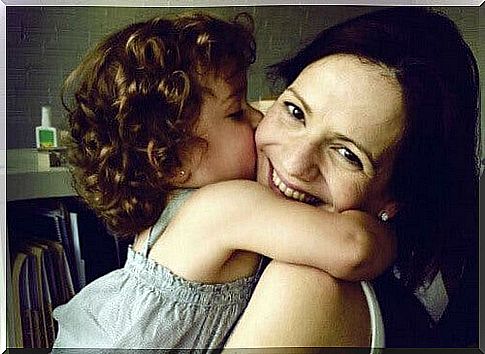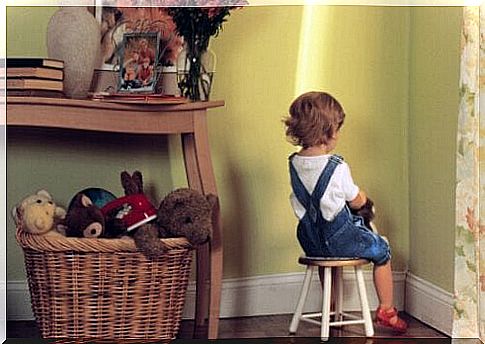How To Help Difficult Children? – Being Parents

So, we are going to explain how to help difficult children. This is easier than you might think!
How to help difficult children?
Trapped in a dead end, that’s how the child feels. Locked in his own vortex, using a shell that doesn’t let his fears escape. Airtight, with no doors, windows or leak points. That is why we must patiently find a way to free this little one.
First of all, if you want to help a difficult child, you need to have a lot of time and patience. Maybe you already know this, but it never hurts to remember it, because if there is anything clear, it is that our efforts are worth it. All the dedication we give to the child will deliver results that will result in a better human being for tomorrow.
A hostile world
Fathers and mothers are overwhelmed by the circumstances and see the task of educating the child as a challenge. Seeing this indirectly, education is given a negative burden which will make the work more difficult and cumbersome. On the other hand, if we change our way of thinking and give it a positive charge, the path will certainly become clearer.
Parents are often frustrated with the uncertainty of not knowing how to act properly, because nothing seems to have any real effect to date. But calm, serenity and healings are not always immediate.
So-called “difficult children” are those who have not yet learned to properly manage their emotional world. Therefore, they behave inappropriately for others. They’re just trying to defend themselves from the world. Because yes, a difficult child can perceive the world in such a hostile way that their reaction can only be to act defensively, in the most primitive way they know.
To help a difficult child, you don’t have to complicate your life. In fact, we’re going to tell you how you can do to help yourself and make your life easier.

Help them effectively
Every human being is different, unique and irreplaceable. Therefore, third party recipes or advice we hear will not work. Despite the good intention that the other person may have when sharing their prescription, it is best to consult a specialist and compare the information received with him.
Why ? Because you will avoid using a formula too soon that, for another child, might have worked at one time, but for yours, now, just not. May be later. The specialist will tell you when and how to proceed.
Our first tip is very simple: stop saying that you have a problem or that you have a difficult child. Yes, as you read it. And here’s another bombshell: picky kids don’t exist.
The words we choose to express define until unconsciously we emotionally unveil. The word problem doesn’t sound appealing, powerful, or generally good. However, if you decide to use another word, it will surely be more beneficial. For example, the word “situation” simply implies a set of elements in a given circumstance. A transitional question One more step
Treating the problem as an extra step instantly benefits us. We feel that we are going through a situation where we just have to look for a tool to be able to move forward. Sounds better, doesn’t it? A problem, on the other hand, seems to have to stop because there is something wrong. This bad thing releases negative feelings and emotions: fear, anxiety, stress, sadness, among others.

A positive attitude frees us from feelings and / or the build-up of stress and frustration.
Second, we advise you to be patient with yourself. As a mother, you also need to take care of yourself so that you can be your child’s rescuer at this point. And you should see a specialist when in doubt, it is important that you too can express what you are feeling, what you are thinking and whatever else you want to manifest to maintain or achieve a healthy emotional life.
There is something you should always take for granted: Every child needs patience, love, and understanding. But if you do not love yourself, understand and have patience for yourself, you will not find how to give it to the child.
Understanding your emotions is the key to success.
Don’t complicate the situation
Most likely, this child will resist at first until he realizes that he can let his guard down and no one or anything will hurt him. The secret is to build strong bonds based on constant communication and unconditional affection. You do not consent to isolation under any circumstances.
Don’t neglect your child, he needs you more than anyone else. If you take care of your son and show him unconditional support, you will realize that his love will grow greater and he will reward you in triplicate. However, the reward is not the reason to help him. May your goal be simply to see him happy and healthy.
Without a doubt, you will be walking on a winding road. Therefore, you should always convey safety so that your child will feel comfortable when they are expressing this repressed emotion. Only in this way will he be able to learn to know himself and to free himself from absolute freedom in an appropriate way.
Also avoid looking for a scapegoat. There is no culprit here, because difficult children are not necessarily the product of bad upbringing. If you need the extra attention, understanding and support, give it. Well, otherwise you will feel overwhelmed because you don’t know what to do not to act “bad”.
What strategies to help difficult children?
Helping a difficult child first and foremost means using the most creative strategies to meet their needs.
The central focus is nothing other than helping him to deal with this emotional tsunami that is overwhelming him. For this, emotional intelligence is presented as a resource to channel and externalize feelings:
- Aim for positive reinforcement. He has great power to help a difficult child. Don’t focus on the mistakes that increase the fragile boy’s anger and anxiety. Express your confidence in him, transmit security. Acknowledge it with positive words.
- Communication without prejudice, comparisons or labels. Also, avoid in-depth questioning. It is only a matter of finding the right time to dialogue with closeness and empathy. Communication in a friendly, serene, sincere and gentle tone. Without mocking, humiliating or ironic.
- Achieve internal balance in the child. Get the child to translate his emotions into a word. Basically, you share what you are feeling in the right way to get relief. Let him be unloaded and relieved with the certainty that you will always be ready to listen and advise him.
- Relaxation is essential to help a difficult child. Teach him to breathe, to channel his feelings through various methods and techniques to evacuate and distract. Teach him to listen and to tolerate frustration.









